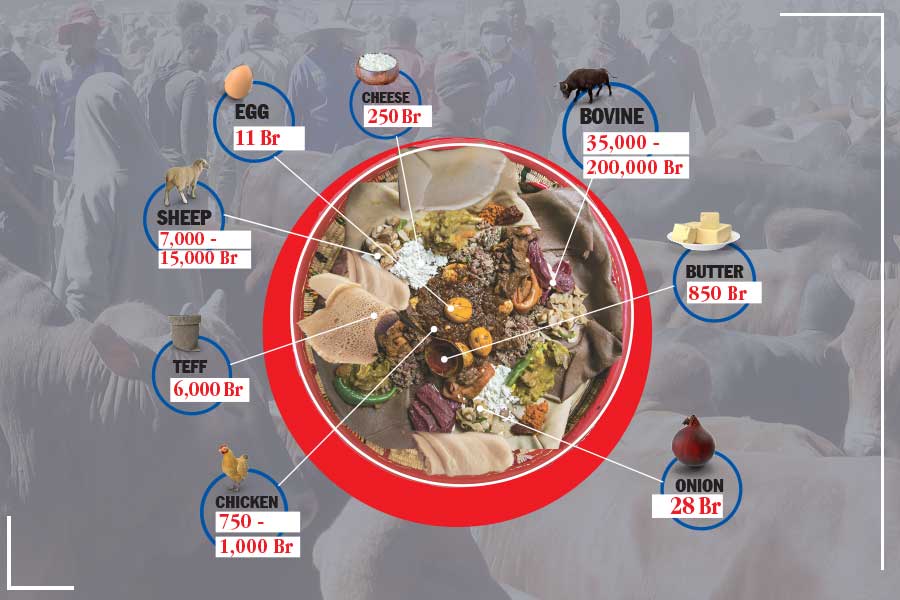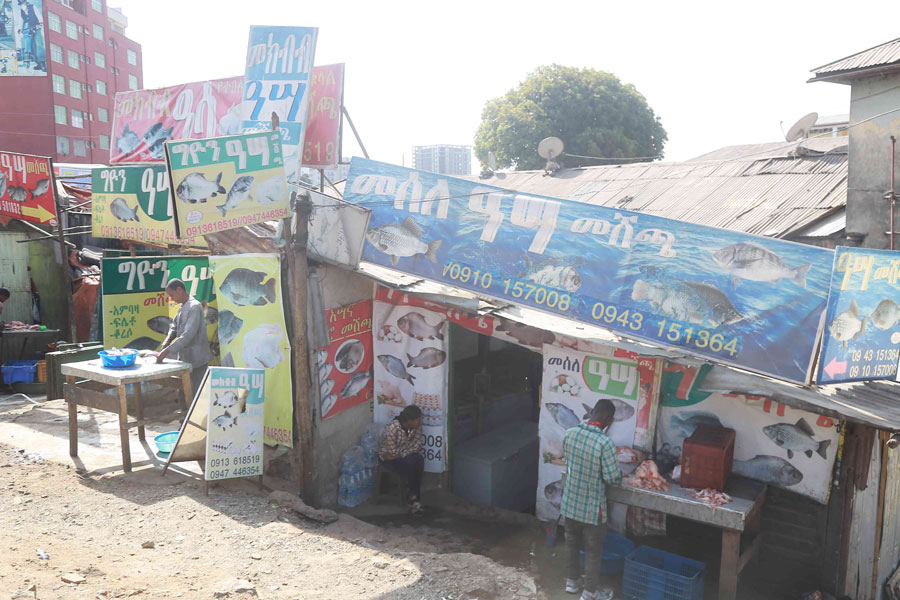
Viewpoints | Jun 05,2021
Edible oil, flour, diapers and baby formula are among the commodities largely affected in the market, as the country faces off its first week of a macroeconomic reform program. Following the reform, close to 1,000 businesses in Addis Abeba faced a crackdown by trade authorities for engaging in business espionage, hoarding, price gouging, and misleading the public, causing economic chaos.
The price of a 20 ltr oil had increased by 1,000Br while the five litres saw a 200 Br rise. Sugar prices have also seen an increase of 10 Br a kilo.
Authorities from the Addis Abeba Trade Bureau and the Ministry of Trade & Regional Integration monitored and regulated trading activities, closing down and warning those operating outside the legal framework.
The Bureau identified 491 traders so far. According to Sewnet Abate, communication director, traders increased prices by over 30pc last week, creating artificial scarcity. He said that while some traders received warnings, others were shut down entirely.
"We are trying to control the market shock," he said.
The federal government made an unprecedented decision to let market forces of supply and demand determine the foreign exchange rate, causing the Birr to drop by over half, to 106 in the official market. The commodity market is feeling the heat. Merkato, usually bustling, was marked by price hikes and shortages.
Meanwhile, consumers are faced with sharply increased commodity prices, which have nearly tripled across markets. Almaz Alemu, a 56-year-old woman, is facing economic hardship due to a sharp increase in market prices. She operates a small eatery in the Haile Garment area, relying on her daily income to support her family. The escalating cost of edible oil, a crucial ingredient for her business, is particularly affecting her operations. She went to Merkato, the largest open market, to try her luck in the wholesale shops.
"I didn't make sense of it all yet," she said.
Merkato, the largest open market, was marked by price hikes and shortages over the week. Mohammed Yasin, an edible oil wholesaler, said that essential commodity imports have stalled, causing shortages and price increases.
"We're out of stock," he said.
The soaring cost of living has dealt a heavy blow to small businesses like Tufyel Culinary. With a daily customer count of 100 and price surges in essential commodities, the owner Tufiyel Moedin finds himself caught in a relentless struggle to keep his restaurant afloat. Despite the immense pressure, he has absorbed some of the increased costs to retain customers but acknowledges that price hikes are inevitable.
Such policy measures are expected to affect food prices, agricultural inputs, and food production. The federal government anticipated the supply shock and implemented measures to mitigate its impact on lower-income groups.
Under Kassahun Gofe (PhD), the Ministry of Trade & Regional Integration has also taken measures against traders creating market chaos. The Ministry cracked down on 796 traders across the city and regional states. Kassahun emphasised that measures are being taken to control the situation and protect the economy.
"It will be under control", he said.
Ethiopia's economy has struggled with foreign exchange shortages. To address this, the government has initiated a major shift in its macroeconomic policy by adopting a market-based monetary system aimed at stabilising the economy. A key outcome expected of this strategy is to bolster foreign currency reserves to a level that can cover two and a half months of imports by 2026.
Additionally, the government has set an ambitious target of reducing inflation to eight percent within three years. This policy shift, if successfully implemented, could enhance economic stability, attract investors, and improve the overall economic outlook.
Experts like Atlaw Alemu (Phd), an economist, are sceptical about the market-led policy reform in a country reliant on imports. He characterises the decision as untimely, arguing that essential conditions like peace, security, and productivity improvements should have been addressed first.
"The economy is bound to collapse," he warned.
He also finds the oversimplification of depreciating the exchange rate to boost exports and reduce imports problematic, as it does not address the underlying issues affecting the country's production and productivity.
PUBLISHED ON
Aug 04,2024 [ VOL
25 , NO
1266]

Viewpoints | Jun 05,2021

Fortune News | Mar 09,2019

Featured | Sep 27,2025

Fortune News | Jan 07,2023

Fortune News | May 20,2023

Radar | Mar 13,2021

Fortune News | Sep 10,2022

Commentaries | Sep 27,2025

Agenda | Feb 25,2023

Fortune News | Sep 19,2020

Dec 22 , 2024 . By TIZITA SHEWAFERAW
Charged with transforming colossal state-owned enterprises into modern and competitiv...

Aug 18 , 2024 . By AKSAH ITALO
Although predictable Yonas Zerihun's job in the ride-hailing service is not immune to...

Jul 28 , 2024 . By TIZITA SHEWAFERAW
Unhabitual, perhaps too many, Samuel Gebreyohannes, 38, used to occasionally enjoy a couple of beers at breakfast. However, he recently swit...

Jul 13 , 2024 . By AKSAH ITALO
Investors who rely on tractors, trucks, and field vehicles for commuting, transporting commodities, and f...

Oct 25 , 2025
The regulatory machinery is on overdrive. In only two years, no fewer than 35 new pro...

Oct 18 , 2025
The political establishment, notably the ruling party and its top brass, has become p...

Oct 11 , 2025
Ladislas Farago, a roving Associated Press (AP) correspondent, arrived in Ethiopia in...

Oct 4 , 2025
Eyob Tekalegn (PhD) had been in the Governor's chair for only weeks when, on Septembe...